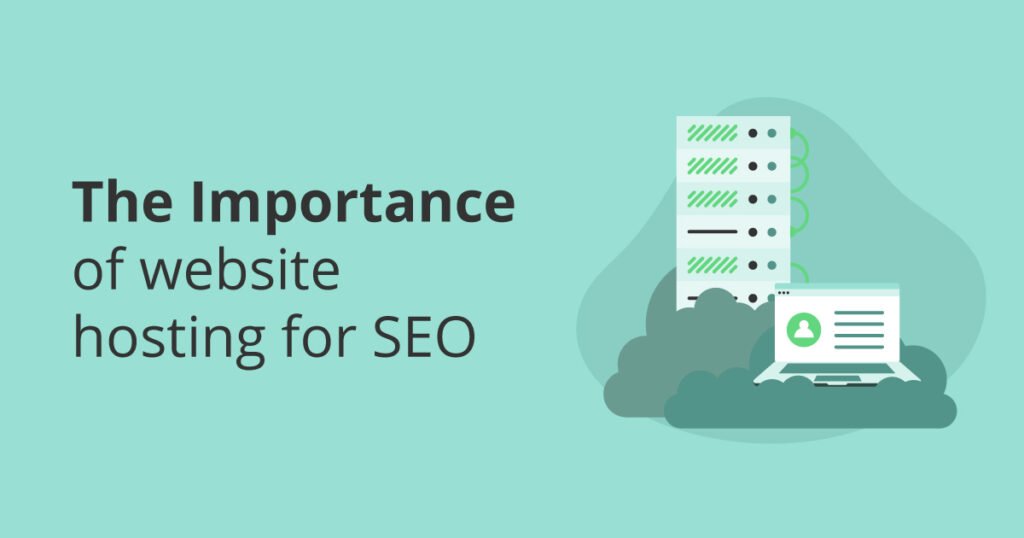
The Importance of Web Hosting for SEO and Website Performance
The impact of web hosting on SEO rankings and the performance of the website could create or break a successful online presence. Most businesses and website owners seem to concentrate their time on content creation–build keywords, backlinks, etc.–neglecting web hosting. The fact, however, is that speed, uptime, security, and user experience, all of which are vital for SEO and performance, depend on web hosting. This blog will tell you the reason why web hosting forms the backbone of any well-optimized and all-round use website.
1. Website Speed and Loading Time
Website speed is among the most critical ranking factors for most search engines like Google. When a site is slow, it frustrates visitors and increases the bouncing rates and hails lower conversions. Thus, almost all search engines consider the fast-loading sites as their top choices to indulge in providing a great experience for their users.

Good quality web hosting provider also makes your site load well by providing server optimization, SSD storage, and content delivery networks (CDN). A low-quality host with poor infrastructure can thus slow down your website, therefore adversely affecting your search engine optimization ranking.
2. Server Uptime and Reliability
A website that is reliable and gives a consistent user experience is liked by search engines. Frequent downtimes may end up hurting your search engine optimization because search crawlers might not be able to access your website, leading to lower rankings.

The best hosting provider will offer high uptime guarantees usually of a minimum of 99.9% or higher; hence, your site would be available to users at all times, making it possible for search engines to crawl through it. The result is that you maintain or improve your search engine rankings and the credibility of your site upon visitors.
3. Secure Hosting and Data Protection

Another critical aspect related to search engine optimization and performance is security. Google prioritizes the security of websites and favors sites with HTTPS over HTTP. A good hosting provider must take care of an SSL certificate, firewall, malware protection, and automatic backups for securing the website against various possible cyber manipulations.
If the website goes down due to poor hosting security, it might be impaired as dangerous by search engines. There could be, therefore, de-indexing or dropping in rank. Thus, secure hosting solutions are worth their weight in gold for SEO performance and maintaining user-sensitive data.
4. Server Location and SEO
Geography of web hosting servers actually influences SEO, not on the basis of only loading speed but also by geo-targeting. For example, if your website has a specific target country as the end audience, a server in that country, or a neighboring region, will lessen latency and make page speed more efficient for those visitors.

In addition, search engines use the server location as one part of the signals for determining the geographical relevance of any websites. Local hosting can better search engine visibility for location-specific searches, helping companies find their audience more easily.
5. Scalability and Resource Allocation
Websites are growing and hence require more server resources to handle increasing traffic and content. All good web hosting providers should offer scalable hosting plans, allowing businesses to upgrade their resources as necessary.

Low-quality hosting limits bandwidth and storage, jeopardizing the stability of website operation during times of high traffic. This, in turn, affects users’ experiences and search rankings. Selecting a hosting provider that offers scalable solutions guarantees seamless website performance, ensuring that both SEO and user engagement are maximized.
6. Technical Support and Customer Service
Access to reliable customer support is an essential aspect of hosting websites. Technical issues, downtime, or server errors can have adverse effects on SEO rankings and website usability.

A good hosting provider offers 24/7 technical support with as many channels as possible, such as live chat, email, and phone to allow for fast resolution and less downtime so that the processed information remains immediately available and optimized for search engines.
7. Impact of Shared, VPS, and Dedicated Hosting on SEO

This hosting type also affects SEO and performance of the website:
Shared Hosting: This is the most cost-effective option but because many websites share the same resources, it often slows page load time.
VPS Hosting: This type of hosting is preferred as it has better performance, security, and control compared to shared hosting, making it suitable for growing websites.
Dedicated Hosting: In contrast, an entire server runs solely for a singular website, thus providing that website top-tier performance, speed, and security. This is great for big businesses.
Well matched hosting types to website needs can enhance seo ranking through fast and secure performance.
Conclusion
Basically, web hosting has the responsibility of properly determining the SEO ranking criteria in the performance of any given website. High-quality hosting gives faster loading speeds and the best uptime, improved security, and an overall better user experience. On the contrary, ignoring the quality of hosting harms performance, security, and search engine rankings.
To give your website the best chance of being optimized for SEO and user engagement, consider going for the best suitable web hosting provider. Rate them in terms of speed, security, uptime, server location, and scalability for ensuring the long haul for your website. This would save you from future regrets when your decision turns out to be the one improving your rankings and traffic while enhancing your site’s overall performance tremendously.

